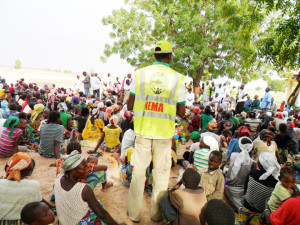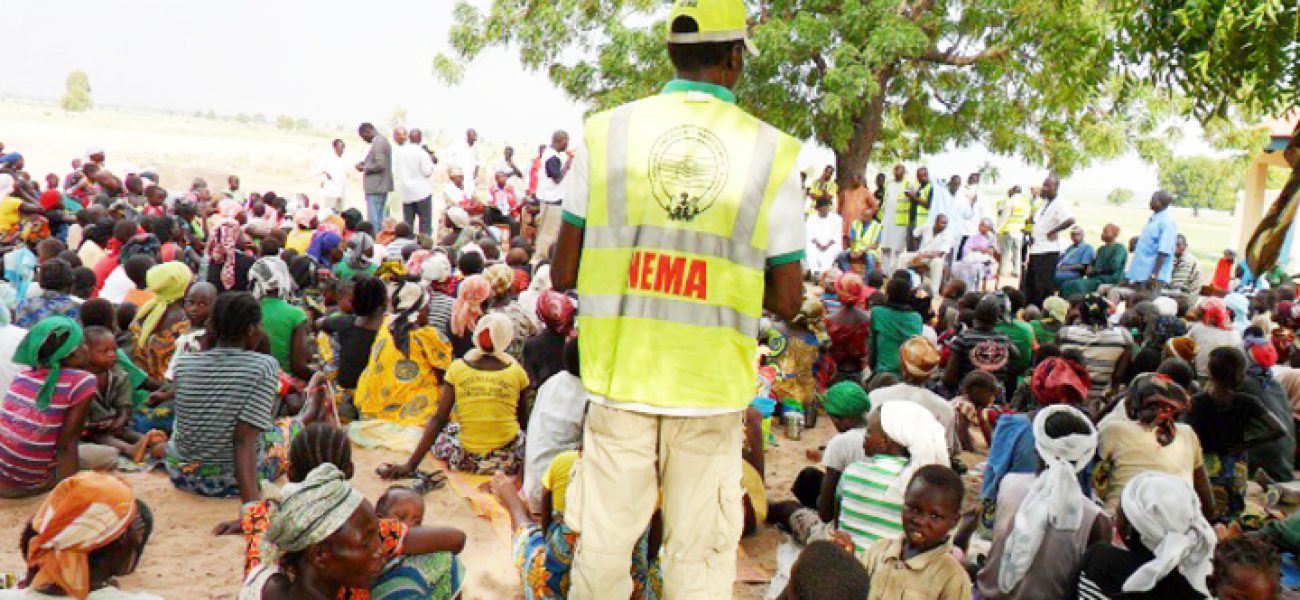 The Senate Bill seeking to grant voting opportunity to internally displaced persons (IDP’s) in the North Eastern States of Adamawa, Borno and Yobe in their respective camps nationwide is due for second reading at the Senate. The Bill passed first reading,on Tuesday, 18th November 2014.
The Senate Bill seeking to grant voting opportunity to internally displaced persons (IDP’s) in the North Eastern States of Adamawa, Borno and Yobe in their respective camps nationwide is due for second reading at the Senate. The Bill passed first reading,on Tuesday, 18th November 2014.
The bill, cited as the Electoral Act, 2010 (Amendment) Bill, 2014 will establish polling units for eligible voters, who have been forced to flee from their ancestral homes by the dreaded Boko Haram sect. It seeks to amend section 42 of the Electoral (Amendment) Act, 2010 by inserting subsection 42(2) to ensure that IDP’s can exercise their right to vote in the upcoming 2015 elections. The amendment to section 42 of the Principal Act states that “The Commission shall establish Polling Units for Internally Displaced Persons” (IDP’s) in their respective camps nationwide”.
Containing only the amendment to section 42,the bill comes as an intervention by the National Assembly to avert any legal challenges that the Nigerian electoral management body may face in creating additional polling units. It will be recalled that the Independent National Electoral Commission (INEC) was widely criticized for being partisan in its now suspended attempt to create 30,000 additional polling units; 21,000 of which were allotted to states in Northern Nigeria.Also, as section 49 of the Electoral Amendment Act, 2010 envisions that voters should be registered at polling units before the right to vote can be exercised;the creation of polling units for IDP’s is a pre-requisite to the exercise of their franchise in the 2015 elections.
Nonetheless, despite the intervention of the National Assembly, the bill remains tentative as the previous Electoral Amendment Bills on the issue are stalled at the House of Representatives, which is yet to pass same before the further stage of bill harmonization. Furthermore, even if this Bill is passed, it is uncertain whether INEC can deal with the peculiar exigencies of the situation; having drawn criticisms on its shoddy handling of the Continuous Voters Registration and Permanent Voters Cards.
Given these constraints and the fact that INEC has little or no time to draw from the experiences of other electoral management bodies in other countries, adequate preparation and catering for this special group, in time for the 2015 elections, will, at best, be presumptuous, if the bill is eventually passed. With about 2 million persons internally displaced and only two months to the General Elections, the electoral management body is in an extremely precarious situation.

